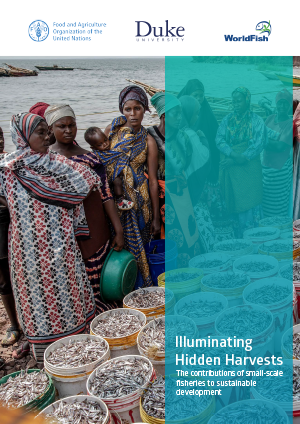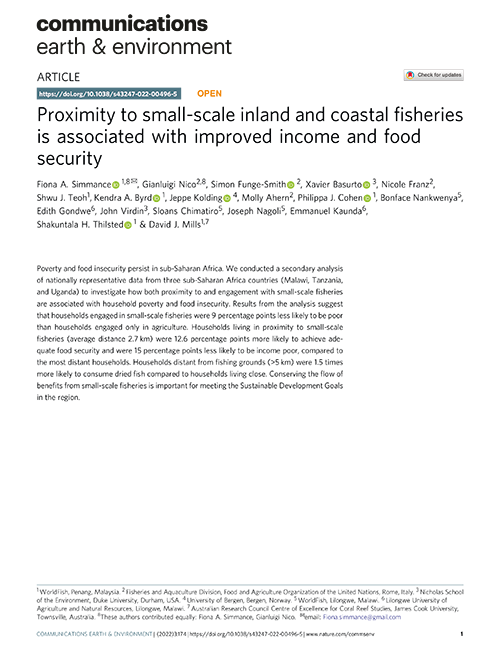Publications
Initial Assessment of Gender Considerations in Plastics Policy
Globally, women are disproportionately burdened and impacted by the harmful effects of plastic across the life cycle of products. These burdens vary across cultural, socioeconomic, and political contexts, and based on how women engage with plastic, but broadly include health and safety impacts, access to opportunities in the waste sector, and exposures to harmful plastic-associated chemicals. This initial assessment considers how women, people who are assigned female at birth and have been socialized as females, and/or female-identified people are considered in plastics policy scope and implementation.
2023 Annual Trends in Plastics Policy: A Brief
In the first annual update of Annual Trends in Plastics Policy, Nicholas Institute researchers find that plastics policy enactment continues to surge and was not negatively affected by the COVID-19 pandemic. To better gauge policy implementation, researchers established a new effectiveness policy library to accompany the 2022 update. These studies indicate that, while underused in existing policy, greater governmental use of economic instruments (e.g., taxes, fees, levies) and information instruments (e.g., awareness campaigns to communicate other instruments to the public, education initiatives, etc.) would aid in enacting effective policies in the future.
Sustainable Ocean Economy: Charting a Prosperous Blue Future from Risk to Resilience
To make the case for mainstreaming ocean sustainability and add to the existing literature, Citigroup carried out an original analysis consisting of two parts: (1) an assessment of impact materiality and revenue exposure for industries and a (2) geospatial analysis to identify potential hotspots of marine natural capital loss.
John Virdin of the Nicholas Institute was one of the expert contributors to this report.
Editorial: Emerging Challenges and Solutions for Plastic Pollution
In a special issue of Frontiers in Marine Science, “Emerging Challenges and Solutions for Plastic Pollution,” these authors and others provide a transdisciplinary collection of articles exploring plastic pollution issues and hypothesizing solutions. The topic is broad to include diverse approaches as contributions from all stakeholders are needed to provide a full perspective on the plastic waste problem.
Illuminating Hidden Harvests: The Contributions of Small-Scale Fisheries to Sustainable Development
The global Illuminating Hidden Harvests study contributes to a more holistic understanding of what small-scale fisheries are, their importance, and why they are essential to efforts to achieve the United Nations Sustainable Development Goals. By using this knowledge wisely within a human rights-based approach in line with the Small-Scale Fisheries Guidelines, and by empowering small-scale fishers and fishworkers, a more inclusive, equitable, sustainable, and resilient small-scale scale fisheries subsector can be achieved.
Spatial Analysis of Aquatic Food Access Can Inform Nutrition-Sensitive Policy
Aquatic foods are critical for food and nutrition security in Malawi, but it is unclear which populations benefit from different aquatic foods and what factors shape food access. Spatial analysis of food flows across value chains from Lake Malawi to domestic consumers shows that usipa (Engraulicypris sardella) reaches more consumers than chambo (Oreochromis karongae) across all Malawi districts. Spatial analysis of food flows can guide policy makers toward supporting fisheries that reach vulnerable populations and designing interventions that enhance physical and economic access to fish.
Voluntary Commitments Made by the World’s Largest Companies Focus on Recycling and Packaging Over Other Actions to Address the Plastics Crisis
In a study published by the journal One Earth, Duke experts share findings from an examination of the types of commitments that corporations have made to address global plastic pollution. The authors find that, rather than tackle virgin plastics, most companies target packaging and general plastics and frequently emphasize recycling-related efforts. While many large and important companies are making commitments, significantly more efforts beyond plastic recycling are required to effectively address plastic pollution challenges.
A Transdisciplinary Approach to Reducing Global Plastic Pollution
In a commentary published by Frontiers in Marine Science, Duke experts outline evidence underscoring the urgency of the plastic policy crisis and recommend novel research-based interventions. The interdisciplinary group of authors are part of Duke's Plastic Pollution Working Group.
Proximity to Small-Scale Inland and Coastal Fisheries Is Associated with Improved Income and Food Security
Poverty and food insecurity persist in sub-Saharan Africa. The authors conducted a secondary analysis of nationally representative data from Malawi, Tanzania, and Uganda to investigate how both proximity to and engagement with small-scale fisheries are associated with household poverty and food insecurity. Results suggest that households engaged in small-scale fisheries were less likely to be poor than households engaged only in agriculture. Households living in proximity to small-scale fisheries were more likely to achieve adequate food security and were less likely to be income poor, compared to the most distant households.
The Evolving Global Plastics Policy Landscape: an Inventory and Effectiveness Review
Governments worldwide are increasingly adopting public policies, laws, and ordinances to reduce plastic pollution. To date, studies have not analyzed the content of, and trends in, these policies. Employing a content analysis and literature search, we set out to better understand: (i) governments responses to this problem over time, and (ii) the state of the available evidence on the effectiveness of policy responses.










